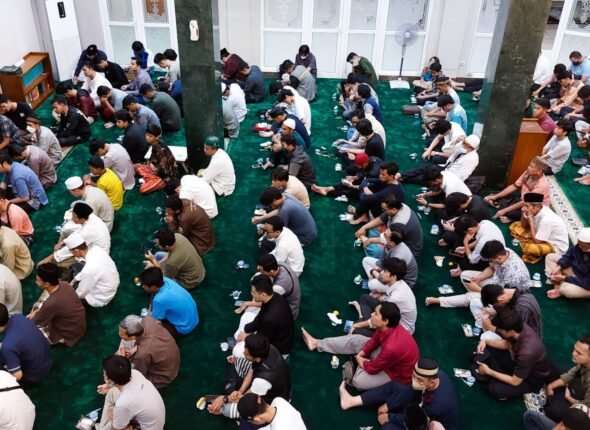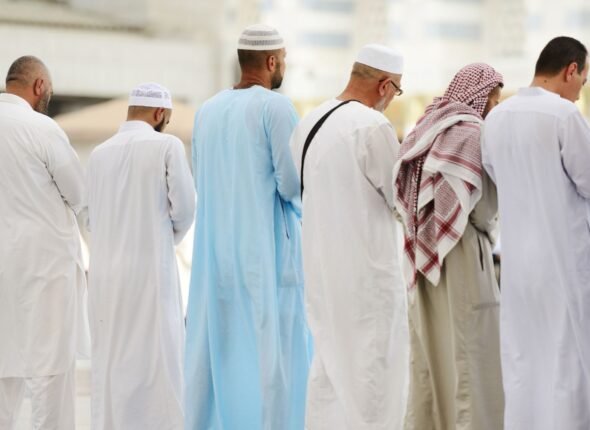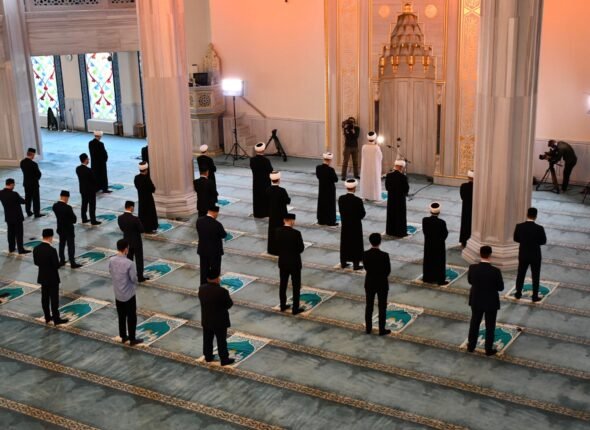Module M5 of the Mosque MBA programme, titled “Mosque Access,” focuses on expanding the inclusivity, resilience, and holistic care offerings of mosque institutions. This module explores the mosque’s role as a community access point for wellbeing, crisis response, elder care, disability inclusion, and bereavement support.
Learners will examine how mosques can broaden their service provision to become community wellbeing hubs that support mental, emotional, and physical needs, especially in response to social pressures and emergencies. It also introduces inclusive practices that ensure accessibility for the elderly and individuals with disabilities, while offering frameworks for life care and bereavement support grounded in Islamic ethics and compassion.
By the end of this module, learners will understand how to strategically design and implement mosque services that are inclusive, responsive, and integrated with wider public health and social care systems, ensuring the mosque remains a vital community sanctuary in all seasons of life.
Unit Breakdown – Module 5: Mosque Access
Unit 17: Mosque Wellbeing Centre
Unit 18: Mosque Resilience Centre – Disaster Recovery
Unit 19: Mosque Elderly Care and Disability Support
Unit 20: Mosque Life Care and Bereavement Services
Curriculum
- 4 Sections
- 0 Lessons
- 16 Hours
- Unit 17: Mosque Wellbeing CentreThis unit explores the evolving role of the mosque Imam in contemporary society. Learners will examine the spiritual, social, and administrative responsibilities of Imams and how their leadership impacts community cohesion. Emphasis is placed on pastoral care, public communication, and interfaith dialogue, alongside traditional religious duties. The unit also introduces professional development pathways and the need for ongoing training and mentorship.0
- Unit 18: Mosque Resilience Centre – Disaster RecoveryThis unit recognises and promotes the essential role of female scholars (Alimahs) within mosque and community environments. It explores gender-inclusive leadership frameworks, the challenges faced by Alimahs in mosque leadership roles, and strategies for institutional recognition and empowerment. Learners will study models of female-led religious engagement and explore methods to support Alimahs’ visibility, education, and community impact.0
- Unit 19: Mosque Elderly Care and Disability SupportThis unit focuses on the organisational and leadership aspects of running a madrassah within a mosque setting. Learners will explore key elements of madrassah governance, including staffing, safeguarding, compliance with UK educational standards, and parent/community engagement. This unit aims to provide the managerial toolkit required to sustain effective, ethical, and child-centred Islamic education programmes.0
- Unit 20: Mosque Life Care and Bereavement ServicesThis unit covers the pedagogical and curriculum development aspects of madrassah education, with a focus on age-appropriate, inclusive, and values-based Islamic teaching. Learners will be introduced to child development principles, cognitive stages, and effective teaching methodologies. It also includes curriculum planning, assessment strategies, and integrating Islamic values in a way that supports children’s emotional and spiritual growth.0









